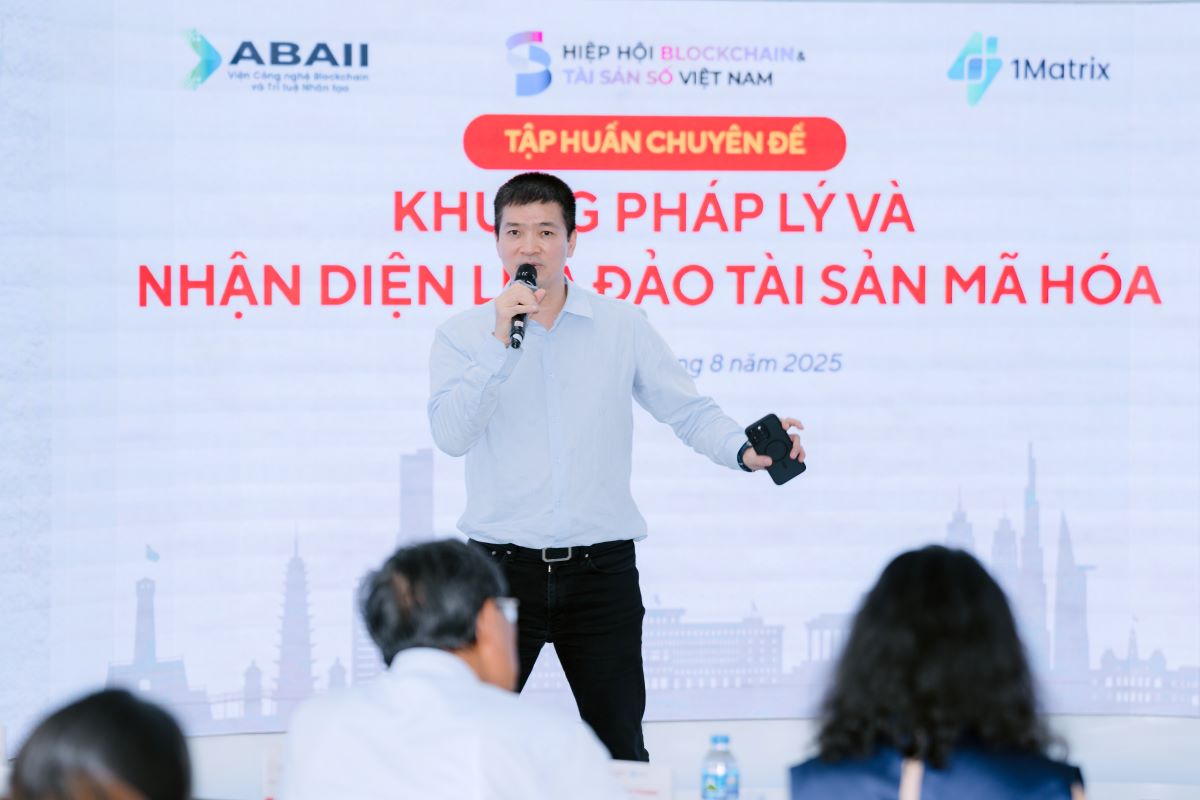Market potential
According to Mr. Phan Duc Trung, Resolution No. 05/2025/NQ-CP dated September 9, 2025 on piloting the digital asset market has been awaited by the market and digital asset investors in Vietnam for a long time. This is the first document marking the implementation milestone under the law after the Digital Technology Industry Law was passed in June 2025. This shows that the Government puts a lot of focus on the feasibility of implementing this market.
In addition to holding the leadership position of VBA, Mr. Trung is also the Chairman of 1 Matrix Joint Stock Company - a unit operating in the industry. As a market expert, Mr. Trung emphasized that Vietnam currently divides encrypted assets into two types: assets associated with real (tokenized) assets and not assets associated with real assets.
Vietnam's orientation is to develop the cryptocurrency asset market to attract capital and increase liquidity for other markets. In particular, when Boston Consulting Group (BCG) forecasts that the real estate market will account for 10% of global GDP by 2033, equivalent to a scale of nearly 19,000 billion USD.
Regarding opportunities, Resolution 05 helps Vietnam enter the global trading market in a legitimate way. Investors have transparent investment channels, the State has tools for tax management and collection, and businesses have more capital mobilization channels. This is also an opportunity to attract foreign currency through international capital flows, while limiting underground flows in the economy and reducing the risk of fraud for people, Mr. Trung shared with Lao Dong.
Challenges and expectations
According to Mr. Phan Duc Trung, one of the biggest challenges in implementing Resolution 05 is human resources. He analyzed that the current market is mainly spontaneous investors, and at the same time we are lacking human resources to operate the market, from state management agencies, service providers to knowledge training for participants. The maturity of the market needs to keep up with current laws.

In particular, Vietnam is lacking personnel in money laundering prevention according to international standards such as ACAMS - a globally recognized international money laundering prevention certificate. A staff member who wants to achieve this certificate must invest 2-3 years of study time with a minimum cost of $18,000.
According to Dr. Tran Quy, Director of the Vietnam Institute for Digital Economy Development, in the pilot phase of prioritizing system safety: cryptocurrency assets are only offered for sale and issued to foreign investors; these shares are only traded between foreign investors through licensed organizations. At least 15 days before offering for sale, the issuing organization must publish the Bach Award according to the form.
According to Mr. Quy, these are three "bottlenecks" to ensure transparent issuance and the right subjects in the initial stage. Regarding transactions, domestic and foreign investors must open accounts at licensed service providers. In particular, after 6 months from the date of the first licensed floor, domestic investors who are still trading outside the licensing system will be handled according to the law.
"This 6-month clause is both a transitional period and a safe mechanism to pump liquidity into the official channel, completely reducing the "black market", Mr. Quy shared.
Regarding solutions and expectations, according to Mr. Phan Duc Trung, recent policies show that the Government is choosing a strong direction, promoting innovation rather than pure administrative management. This is a positive signal for both businesses and investors.
In the coming time, guiding documents will soon be issued, clarifying the regulations that the market is very interested in such as the asset storage mechanism, compliance with technology standards, as well as regulations on taxes and fees.
I hope that if a market needs 10 years to mature, we can learn from previous models so that in just 2-3 years, the Vietnamese cryptocurrency market can reach the corresponding maturity, Mr. Trung emphasized.











